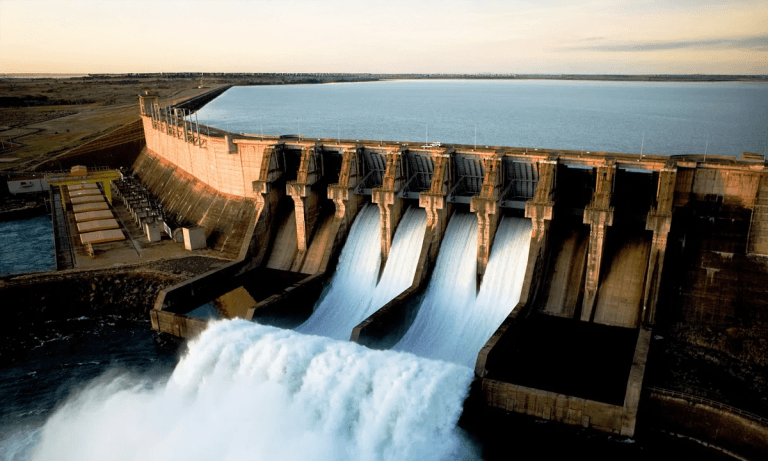Christopher Nolan’s groundbreaking film is not only a visually breathtaking experience, but it also left viewers wrestling with philosophical and scientific questions long after leaving the theater. Now, a decade later, Interstellar is making its way back to IMAX screens, inviting audiences to relive its grandeur and reexamine its themes in the context of today’s world—a world facing eerily similar challenges.
The Timeless Allure of Interstellar: Science, Humanity, and HopeOne of the primary reasons Interstellar has maintained its popularity over the past decade is its unique blend of high-stakes science and deeply human themes. While grounded in speculative science, courtesy of physicist Kip Thorne, Interstellar was never solely about space exploration. It was about survival, love, sacrifice, and what happens when humanity is forced to confront its mortality.
The film’s storyline, centering around a planet that can no longer sustain life due to blight and climate change, mirrored anxieties already present in the 2010s. And here we are, ten years later, where climate issues have only become more pressing. Interstellar continues to draw viewers because it taps into a deeply rooted fear—what happens when we run out of time? And yet, it doesn’t stop there; it also dares to envision a future where we strive to find hope beyond the limitations of our current world.
When reality mirrors fiction, Source: Paramount Pictures
Why Interstellar Is Returning to IMAX: Visual Spectacle Meets Human DepthIf there’s any director who can make an IMAX theater feel like a spaceship, it’s Christopher Nolan. From black holes to distant planets, Interstellar’s visual spectacle was groundbreaking, setting new standards in realistic space portrayal and leaving audiences in awe. Seeing Interstellar in IMAX in 2024 is more than just a nostalgia trip—it’s a reminder of what cinema can achieve when visuals meet visionary storytelling.
IMAX gives viewers a front-row seat to a grand cosmic ballet: Gargantua, the black hole that warps space and time, and Miller’s Planet, where every second costs you seven years back on Earth. And as we face an era of AI advancements, space tourism, and billionaires chasing the stars, Nolan’s work feels like a glimpse of our potential future. The film is a testament to cinema’s power to make distant realities feel within reach, showing us space travel that feels plausible, not fantasy-driven.
Essential IMAX viewing in December, Source: Paramount Pictures
Reflections of Our Reality: Earth’s Decline and the Space RaceInterstellar took liberties with its depiction of Earth’s collapse, but the underlying message—our planet can’t take unlimited strain—has only grown more relevant. In the movie, Earth is being ravaged by crop blights, dust storms, and diminishing resources. In 2023, we’re facing climate change, biodiversity loss, and pollution that, while not identical to Interstellar’s portrayal, echo the same dire warnings about humanity’s impact on the planet.
This film taps into both our fears and hopes surrounding space exploration. In Interstellar, the journey into space is both a rescue mission and a final, desperate attempt to save humanity. With organizations like SpaceX pushing for Mars colonization and NASA’s Artemis program setting its sights on the Moon, we’re now inching closer to the prospect of space becoming a “Plan B” for humanity. The film resonates because it acknowledges this “great escape” fantasy while simultaneously questioning the ethics of leaving Earth behind.
Space the final frontier?! Source: Paramount Pictures
A Hopeful Future: The Humanity Behind the StarsIf Interstellar reminds us of our planetary responsibilities, it also reminds us that, at our core, we are resilient beings bound by love, duty, and a desire for connection. Love, a seemingly irrational force, emerges as a central theme in the film, bridging time, space, and even logic. Cooper’s (Matthew McConaughey) relationship with his daughter, Murph, isn’t just emotional—it’s the gravitational pull that tethers him back to humanity.
In a time when the world seems polarized and fractured, Interstellar champions hope and cooperation. It suggests that even in the bleakest situations, love and resilience have a part to play in saving us. The movie’s closing scenes, with Cooper and Murph reconnecting in a future where humanity has established a new home, may be fiction, but the aspiration for unity is real.
Looking Ahead: Interstellar’s Message in Our Age of Space ExplorationAs space exploration gains momentum, Interstellar feels like a prophetic voice reminding us that while humanity’s ingenuity is vast, it is not infinite. The film’s iconic line, “We used to look up at the sky and wonder at our place in the stars. Now we just look down and worry about our place in the dirt,” resonates deeply as we balance the tension between innovation and preservation.
Nolan’s film posits that while space offers untold potential, our hearts, histories, and futures are still bound to Earth. As we reach new milestones in space exploration, Interstellar acts as a cautionary tale: we must respect and nurture our home, even as we venture outward. It’s a message that grows more urgent with each passing year, especially as the allure of space can sometimes overshadow the pressing need to address problems here on Earth.
A man on a mission, Source: Paramount Pictures
The Legacy of Interstellar: A Cinematic Monument to Ambition and EmotionTen years on, Interstellar is more than a film; it’s a cultural artifact that bridges science fiction with the emotional fabric of our lives. Its IMAX rerelease is a fitting tribute to the film’s impact, allowing a new generation of viewers to experience it as intended—up close and all-consuming. As we face a world where science and technology are evolving faster than ever, Interstellar serves as a powerful reminder: that the journey into the unknown must be balanced with wisdom, humility, and, above all, humanity.
So, if you find yourself staring up at the stars after rewatching Interstellar in theaters this December, just remember: the future might be closer than we think, but Earth is where our hearts—and our hopes—still lie.
Fun fact, on every episode of The Crypto Conversation podcast, Andy the host asks each quest for their favorite piece of science-fiction. Andy tells me that the three most reliably popular answers are: The Three-Body Problem, the Matrix, and Interstellar.

















